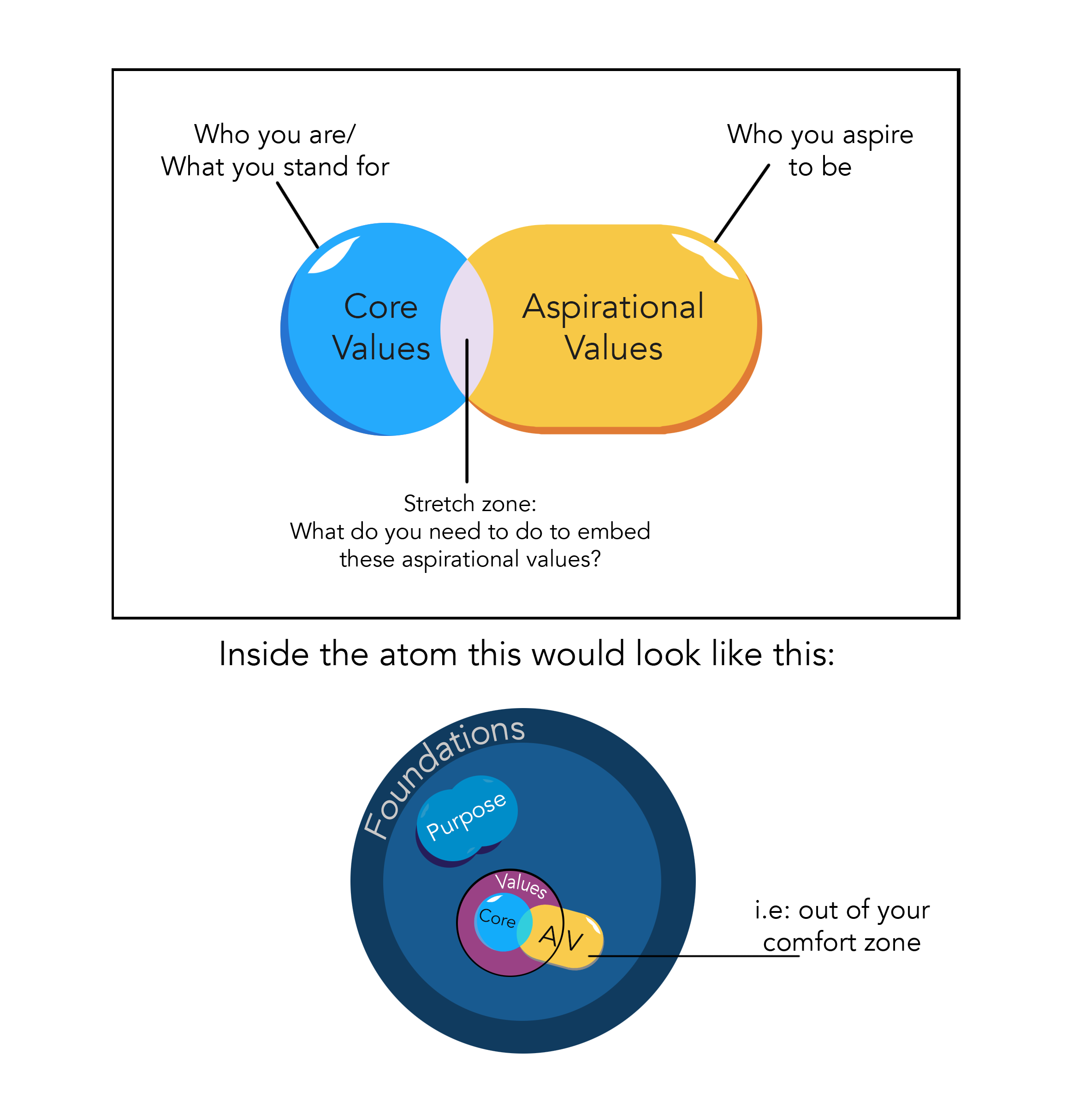When was the last time you asked yourself: what are my values? It is such an important question, but all too often we assume that we know the answer, and rob ourselves of the opportunity to define our guiding values in a way that is meaningful and moves us closer to our end win. Take Siobhan as an example.
Siobhan was known for her relentless work ethic. She had been fast-tracked through her company and was heading towards a senior leadership position within the next couple of years. However, when her line-manager changed, she started to feel undervalued and frustrated in her role.
She used to feel a sense of achievement at the end of the working day. However, under this new manager, she felt that her hard work was no longer getting her noticed. She decided to request a meeting with her manager to clear the air and get to the root of this issue.
Why are values so important?
Siobhan’s manager said that while he valued her work ethic, she had to start engaging with people in a more effective way if she was to progress to a leadership position. Siobhan found the feedback hard to take but on reflection, it helped her to understand how her own values had been impacting her behaviour. One of Siobhan’s core values was ‘a sense of achievement’, and when she felt that she was no longer getting recognised for her work, she responded negatively.
Siobhan’s story is a great example of how our values can have a profound effect on our behaviour, our confidence, and our plans for the future. When we understand our core values, we understand ourselves – what drives us, and what holds us back. Only then can we take action to correct our course, whether that means doubling down on our core values, or working towards an aspirational value.

While our core values tell us who we are at a granular level, our aspirational values represent the person we want to be. Siobhan had reached a point in her career where her core value of ‘a sense of achievement’ was holding her back. After that meeting with her manager, she decided to work towards a new aspirational value – to become a more engaged person.
How do we change our values?
Values are essentially descriptive and intangible, but they can be used to lead to real action and behavioural change. If we use our values as a lens, we can make them real through our everyday conduct and our relationships with others. In this way, we can take ownership of our identity and work towards becoming the best version of ourselves that we can possibly be.
Our core values are easily maintained – they represent the things that are integral to us, which have been formed organically over the course of our lives. Aspirational values are tougher to realise. For Siobhan to embody the aspirational value of being a more engaged person, she will need to work on her communication skills, perhaps by speaking up in meetings or making more of an effort to socialise with her work colleagues.
Aspirational values often require hard work and a willingness to commit to some big changes in our lives. There are no short cuts here – an honest person can’t simply state that their values are honesty, and then draw a line under it. In order to truly embody a new value, we need to challenge ourselves to live that value at all times, even when it might lead to some awkwardness or discomfort.
The rewards of value setting
Once we know our values, we can improve our understanding of ourselves, and this is crucial when it comes to building confidence and working towards an end win. Our core values tell us who we are, and our aspirational values tell us who we want to be. If we can stay focused on these values, we will be true to ourselves, no matter what challenges life throws at us.
To learn more about how to define your values, and how your values can move you closer to life’s big wins, pick up our book from WhatDoesItTakeToWin/takecontrol.
